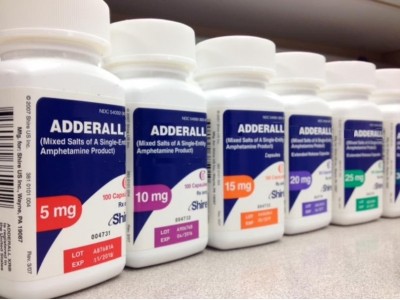Taking Zoloft (sertraline), Adderall (amphetamine/dextroamphetamine), and Ativan (lorazepam) together can be done under the careful supervision of a healthcare provider, but it carries potential risks and side effects. These medications treat different conditions: Zoloft is an SSRI used for depression and anxiety, Adderall is a stimulant used for ADHD and narcolepsy, and Ativan is a benzodiazepine used for anxiety and insomnia.
Read also clomid without dr.
Potential risks and side effects include:
Serotonin Syndrome: Zoloft increases serotonin levels, and when combined with other medications that affect serotonin, such as certain stimulants, there is a risk of serotonin syndrome. Symptoms include confusion, agitation, rapid heart rate, high blood pressure, dilated pupils, loss of muscle coordination, or muscle rigidity.
Increased Anxiety and Insomnia: Adderall is a stimulant and can cause anxiety and insomnia, which might counteract the calming effects of Zoloft and Ativan. This can lead to increased nervousness or difficulty sleeping.
Sedation and Drowsiness: Both Zoloft and Ativan can cause sedation and drowsiness. Combining these with Adderall, which is a stimulant, can result in fluctuating levels of alertness, potentially affecting concentration and overall daily functioning.
Cardiovascular Effects: Adderall can increase heart rate and blood pressure. Zoloft and Ativan can also affect the cardiovascular system. Monitoring by a healthcare provider is important to avoid adverse cardiovascular effects.
Dependence and Withdrawal: Ativan is a benzodiazepine and can be habit-forming, leading to dependence if used long-term. Abrupt discontinuation can result in withdrawal symptoms. It’s important to use Ativan only as prescribed and under close medical supervision.
Interactions and Side Effects: Each of these medications has its own profile of side effects, and taking them together can increase the likelihood or severity of these side effects. This can include nausea, dizziness, dry mouth, changes in appetite, and mood swings.
Given the complexities of combining these medications, it’s crucial to do so only under the guidance of a healthcare provider. They will consider your overall health, specific conditions, and other medications you may be taking to manage potential interactions and side effects. Regular monitoring and communication with your healthcare provider are essential to ensure safe and effective use of these medications together.
